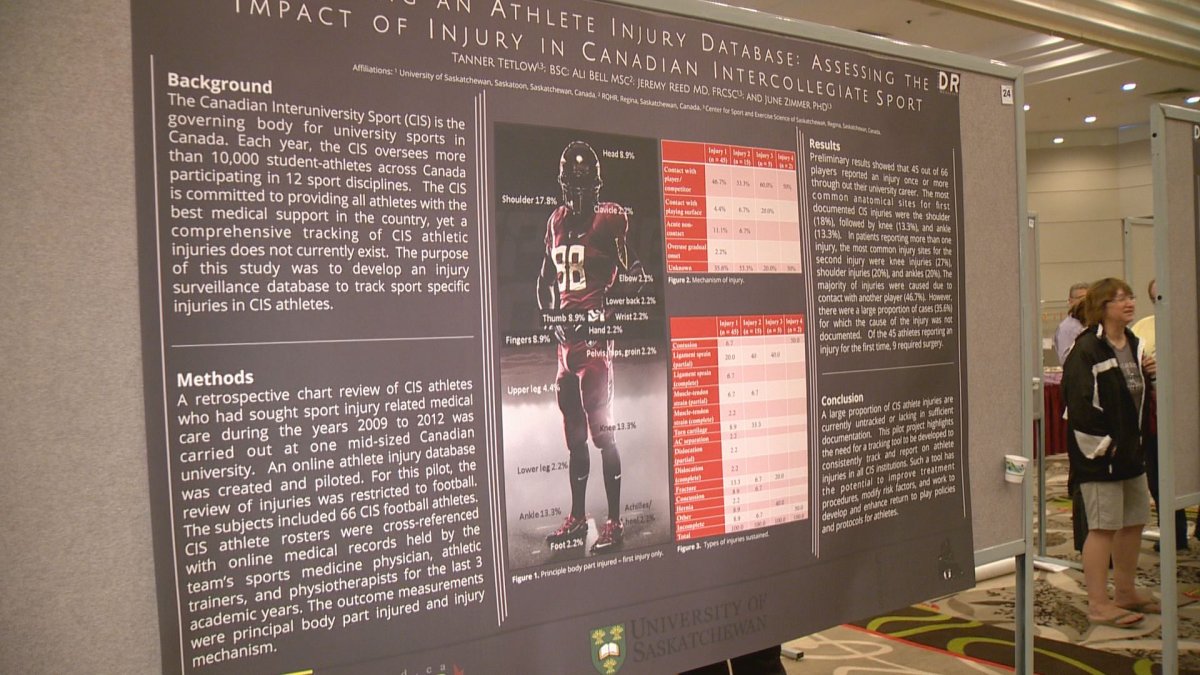REGINA – A group of Saskatchewan researchers is looking at how a national database tracking sports injuries might prevent university athletes from getting hurt.

“The biggest thing we found was that there’s a lot of missing data and unknown data surrounding injuries,” said Tanner Tetlow, a University of Saskatchewan medical student and researcher.
In the United States, the National Collegiate Athletic Association (NCAA) has been analyzing trends in sports injuries for over 30 years.
“In Canada, each province sort of has their own way of tracking these injuries but there’s not one uniform way of getting it all together,” explained Tetlow.
The four-year study, conducted by Tetlow, Jeremy Reed, and June Zimmer, recorded the physical health of 66 university football players in Saskatchewan. It found 45 of them were injured at least once and nine of the injuries required surgery.
A national database could give universities a better idea of how athletes are getting hurt, and insight into how to reduce those injuries: “If the players are getting injured more on the practice days versus in the games. If they’re getting injured more away or at home.”
The “Developing an Athlete Injury Database” study was one of 55 on display at the Regina Qu’Appelle Health Region’s research showcase Monday afternoon. However, they are just a snapshot of the 200 projects currently underway in the region.
“We really are the only health region in the entire province that has a dedicated research unit,” said Elan Paluck, director of research with the RQHR. “We firmly believe that by integrating research with clinical practise, that patients within the health region are getting the best possible care.”
Another project on display, also one of this year’s RQHR award winners, involved going into Regina public schools to help nearly 300 elementary students deal with anxiety.
Before the “Friends” program, about 21 per cent of the kids were found to be dealing with some sort of anxiety, stress, or depression. However, after the program, that number dropped to about 13 per cent.
“It involves learning about feelings. It involves learning relaxation techniques. We would teach them things like milkshake breathing. So how to breath in a way that calms you down by blowing through a straw and making bubble,” said Rob Stephenson, researcher and program manager with Regina Child and Youth Services.




Comments